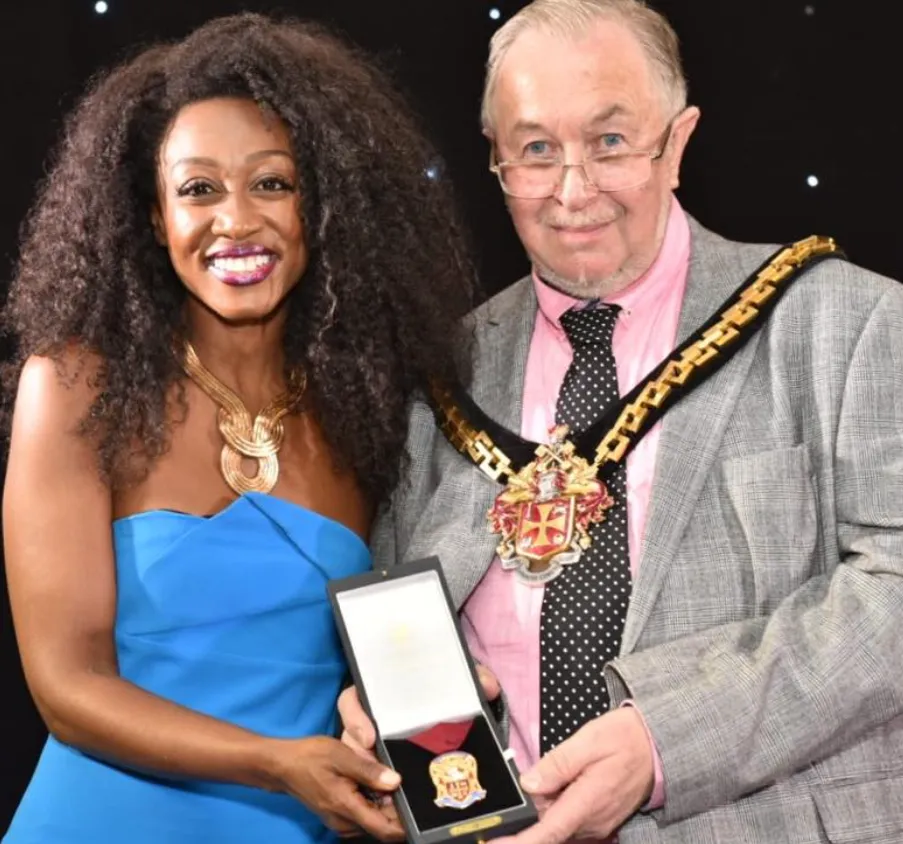Beverley Knight: From Wolverhampton to Stage, Soul & Community Beverley Knight is the first Wolverhampton-born singer to receive a MOBO (Music of Black Origin) Award, and to date she has won three MOBOs.
In 1999, she triumphed in both the Best Album and Best R & B Artist categories, cementing her status as one of Britain s most influential voices in soul and R&B. Beverley Knight, born Beverley Anne Smith on 22 March 1973, is the daughter of Jamaican parents. Growing up in a strict Pentecostal household in Wolverhampton, she was immersed in gospel music and sang in church choirs from an early age. Although secular music was discouraged at home, she discovered artists such as Sam Cooke and Aretha Franklin, whose work inspired her to begin writing songs at the age of 13.
She attended local schools in Wolverhampton before moving to Cheltenham for further studies, and later studied religious theory and philosophy at the University of Wolverhampton. Her career began in earnest when she signed to the independent Dome label in 1994 and released her debut album, The B-Funk, in 1995. The album won critical acclaim for its old-school soul sound, and the single Flavour of the Old School cracked the UK Top 40 in 1996. After signing with EMI s Parlophone, she released her breakthrough album Prodigal Sista in 1998, which produced five Top 40 singles including Greatest Day and Make It Back 99. The album went on to win MOBO Awards for Best Album and Best R & B Artist the following year. Knight s success continued with Who I Am (2002), which included hits like Get Up! and Shoulda Woulda Coulda, and was nominated for the Mercury Music Prize. She followed with Affirmation (2004), her biggest-selling release, which featured the singles Not Too Late for Love and Keep This Fire Burning. Over the years, she has released multiple acclaimed albums including Music City Soul (2007), 100% (2009), Soul UK (2011), Soulsville (2016), and in 2023 The Fifth Chapter, her first album of original material in more than a decade. Beyond recording, Knight has built a significant reputation in musical theatre.
She made her West End debut in The Bodyguard in 2013, then starred in productions including Memphis the Musical, The Drifters Girl, and Sylvia, for which she won an Olivier Award in 2023. In 2025, she is playing Sister Rosetta Tharpe in Marie & Rosetta, touring the UK and including a special homecoming performance at Wolverhampton Grand Theatre. Her recognition and awards include an Honorary Doctor of Music from the University of Wolverhampton (2005), the Freedom of the City of Wolverhampton (2018), and appointment as MBE in 2006 for her services to music and charitable contributions. In May 2025, during her return to Wolverhampton, she was honoured with a commemorative plaque at Wolverhampton Grand Theatre seat B25 now carries her name, a tribute that left her, in her own words, shocked into silence. Family has been an important part of Knight s story.
She shares a close bond with her sister, Cynthia, who was also musically gifted, often playing piano and performing alongside Beverley in their youth. Beverley has described Cynthia as a lifelong influence and confidante. Her brothers have remained more private, but together the family has been central to her grounding and her continued connection to Wolverhampton.
Beverley Knight s charitable and advocacy work is an important part of her legacy. She has been an ambassador for Christian Aid, the Stop AIDS Campaign, and the Terrence Higgins Trust. Her activism has often been inspired by personal connections, such as the loss of her close friend Tyrone Jamison to HIV in 2003. She has spoken out publicly on issues of race, LGBTQ+ rights, and the Windrush scandal, using her platform to highlight injustice and support marginalised communities. Although much of her charity and advocacy work has been national and international, Knight remains strongly tied to her roots in Wolverhampton and to her Jamaican heritage. She often references her upbringing in the Caribbean community of the city, recalling her childhood surrounded by Jamaican food, music, and church culture.
Her pride in her background and her visibility as a successful Black British artist of Jamaican descent has been a source of inspiration for the Caribbean diaspora in Wolverhampton, particularly for younger generations who see her as a role model. Even today, Knight continues to celebrate and represent Wolverhampton on national and international stages. Her return visits, hometown performances, and civic honours highlight her importance not only as an artist but also as a cultural ambassador for Wolverhampton and the wider Caribbean community in the UK.







